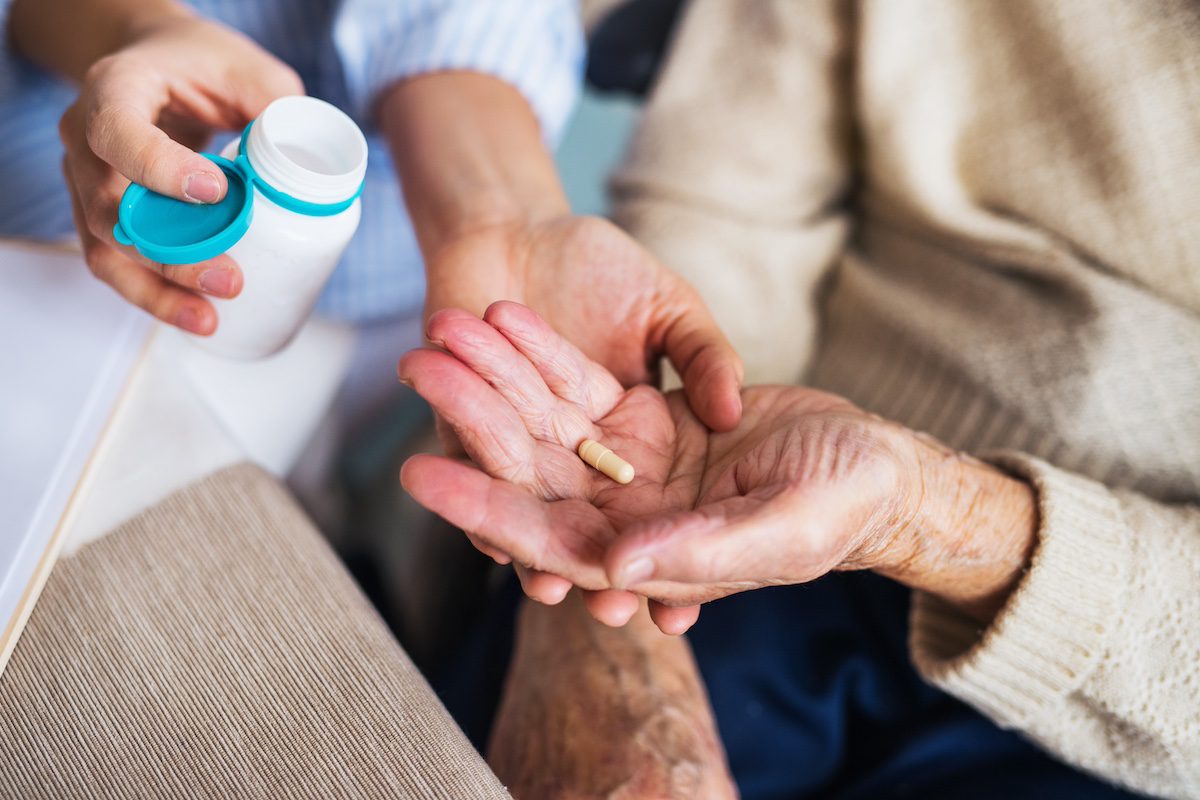As the days grow shorter and temperatures start to drop, it’s important to take precautions to stay safe during the fall season. Falls are a leading cause of injury and death among seniors, so it’s crucial to take steps to prevent them.
Here are seven tips for keeping your loved one safe this fall:
1. Keep Floors Clean and Free of Clutter.
A cluttered floor is a tripping hazard. Be sure to keep floors clean and free of obstacles. It is a good idea to create a clear path from the bed to the bathroom to reduce the risk of falls.
2. Check for Slippery Surfaces
Inspect your home for slippery surfaces, such as rugs or floor mats that could cause your loved one to fall. Make sure all floor surfaces are dry and free of debris.
3. Install Handrails On Stairways and In Bathrooms
Handrails can provide support and stability when climbing stairs or getting in and out of the shower or tub. If possible, install handrails on both sides of the stairway.
4. Wear Proper Footwear
Wearing shoes with good traction can help prevent slips and falls. Avoid wearing loose-fitting shoes, shoes with high heels, and shoes with slippery soles, such as those made of leather or vinyl.
5. Use a Cane or Walker If Needed
If your loved one has trouble balancing, a cane or walker can help them stay steady on their feet.
6. Exercise Regularly
Regular exercise helps strengthen the muscles and improve balance, which can help reduce the risk of falling. Some examples of exercises that can help improve balance include Tai Chi, yoga, and Pilates.
7. Have Regular Checkups With the Doctor
Be sure to have regular checkups with the doctor to monitor any health conditions that could increase the risk of falling, such as vision problems or heart conditions.
Some medications can cause dizziness or drowsiness, which can lead to falls. Be sure to review all medications with a healthcare professional to ensure they are not putting your loved one at risk for falls.
Taking these precautions can help keep your loved one safe this fall season. If you have any concerns about your loved one’s safety, be sure to talk to their doctor or a home health care provider.
Why Is Fall Prevention Important?
Falls are the leading cause of injury and death among seniors. According to the Centers for Disease Control and Prevention (CDC), one in four Americans aged 65 or older falls each year.
Falls can cause serious injuries, such as broken bones or head injuries, and can lead to a decline in health and independence.
Preventing falls is important for maintaining good health and quality of life as we age. Falls can be prevented by taking some simple precautions, such as those listed above. If you have any concerns about your loved one’s risk of falling, talk to their doctor or a home health care provider.
Preventing Falls During Hospice Care
Hospice care is a type of care that is provided to terminally ill patients and their families. The goal of hospice care is to provide comfort and support during the end-of-life process.
Hospice care teams are typically made up of doctors, nurses, social workers, chaplains, and volunteers. They work together to provide physical, emotional, and spiritual support for both the patient and their family.
One of the main concerns of hospice care teams is preventing falls. Hospice patients are at an increased risk of falling due to their weakened condition.
There are several things that hospice care teams can do to prevent falls, such as:
- Assessing the risk of falling: hospice care teams will assess each patient’s risk of falling and develop a care plan to reduce that risk.
- Keeping floors clear of clutter: hospice care teams will make sure that floors are free of obstacles that could cause patients to fall.
- Using assistive devices: patients who are at risk of falling may be provided with devices, such as walkers or canes, to help them stay steady on their feet.
- Exercising regularly: patients will be encouraged to exercise regularly to improve their strength and balance.
- Wearing proper footwear: patients will be advised to wear shoes with good traction to prevent slips and falls.
By taking these precautions, hospice care teams can help prevent falls and keep patients safe.
Health Conditions That May Lead To Increased Fall Risk
Several health conditions can lead to an increased risk of falling. Some of these conditions include:
- Vision problems: poor vision can make it difficult to see obstacles in your path, which can lead to falls.
- Heart conditions: heart conditions can cause dizziness or fainting, which can increase the risk of falling.
- Neurological conditions: neurological conditions, such as Parkinson’s disease or Alzheimer’s disease, can affect balance and coordination, which can lead to falls.
- Musculoskeletal problems: musculoskeletal problems, such as arthritis, can make it difficult to move around and stay steady on your feet.
- Medications: some medications, such as sedatives or blood pressure medications, can cause dizziness or drowsiness, which can lead to falls. Be sure to talk to your loved one’s doctor about any health conditions that may put them at risk for falling.
What To Do If A Fall Does Occur
If a fall does occur, it is important to stay calm and follow the steps below:
- Check for injuries: if your loved one is injured, call 911 immediately. If there are no injuries, help your loved one up gently and slowly. Once they are up, have them sit down and rest for a few minutes. If they are feeling dizzy or faint, have them lie down until the feeling passes.
- Call their doctor: even if there are no injuries, it is still a good idea to call their doctor. They may want to check for any underlying health conditions that could have contributed to the fall.
- Make sure they are safe: once your loved one is up and resting, take a look around to make sure that the area is safe. Remove any obstacles that could cause them to fall again.
If your loved one has fallen, or if you are concerned about their risk of falling, talk to their doctor or a home health care provider. Several things can be done to prevent falls and keep your loved one safe.


